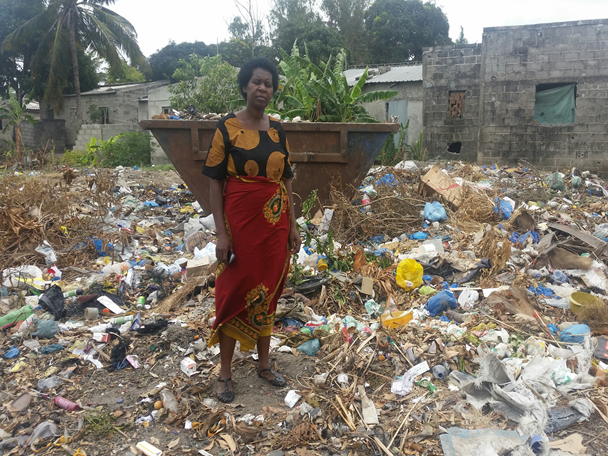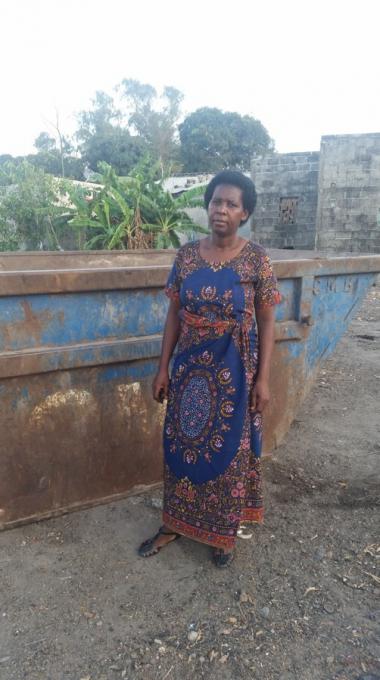How Communities are Taking Action against Garbage in Mozambique
For years, Rosa Sozinho and her six children did not pay attention to the trash that littered their neighborhood. Besides contributing to the growing pile of garbage, they didn’t understand how dangerous this was to their health. “I thought that because I was throwing the garbage far away from my house it would not have an influence on my children's health,” said Rosa.

Waste management is a serious problem. Globally, about 1,000 children under five die from diarrheal diseases per day due to a lack of safe water, sanitation and basic hygiene. At health facilities, an estimated 10-15% of maternal deaths worldwide are due to infections linked to unhygienic conditions during labor and poor hygiene practices during the six-week postpartum period. Lack of appropriate sanitation systems, poor public awareness, and improper waste disposal all contribute to the problem.
For Rosa, things changed when a community health worker from the US Agency for International Development’s flagship Maternal and Child Survival Program (MCSP) recently visited their community to educate them on safe drinking water, sanitation, good hygiene practices and how to manage their garbage. “I was wrong,” Rosa said, after realizing the danger the garbage and the poor sanitation situation posed to her family.
From the community to the clinic, MCSP is working to improve water, sanitation, and hygiene (WASH) behaviors and social norms, and employ counseling, demonstration and practice at all stages of the maternal, newborn and child health care. In Sofala Province, MCSP has empowered over 420 community health volunteers who are educating families and communities on ways to improve hygiene and household sanitary practices.
At local health promotion sessions, women, mothers and all other family members learn proper hand washing practices, disposal of human feces, safe water treatment, filtering and storage techniques and how to clean spaces around their homes to ensure immediate surroundings are free of trash and animal droppings.
These sessions motivated Rosa to take action: "I felt comfortable and confident after the meeting we had where we talked about the issue of hygiene, water and sanitation. Right after this session I volunteered to lead the process of collecting waste."
 and other residents in her community are managing garbage correctly by depositing their trach in containers. The City Council has also stepped up doing the garbage collection at the right time. “I am satisfied with the [MCSP] program and the work of the community health agents,” said Rosa, whose tidy home and clean surroundings showcased MCSP’s impact.
and other residents in her community are managing garbage correctly by depositing their trach in containers. The City Council has also stepped up doing the garbage collection at the right time. “I am satisfied with the [MCSP] program and the work of the community health agents,” said Rosa, whose tidy home and clean surroundings showcased MCSP’s impact.
Rosa has become a change agent herself: “We need to spread the word so other communities can benefit from this information and can create cleaner and better places” to prevent needless deaths of women and children in Mozambique.
 Mozambique
Mozambique